Understanding Integrative Care in Mental Wellness
Integrative care is reshaping mental health treatment by addressing the whole person—physically, emotionally, socially, and spiritually. This approach blends conventional medical therapies with complementary and alternative practices to nurture mental wellness holistically. This article explores the principles, therapies, scientific evidence, and implementation models that make integrative care a powerful strategy for enhancing mental health outcomes and patient quality of life.
Foundations of Holistic Mental Health Care: Principles, Approaches, and Methods
What are the principles, approaches, and methods of holistic mental health care?
Holistic mental health care is built on the fundamental principle of treating the whole person rather than just isolated symptoms. This approach emphasizes the importance of addressing physical, mental, emotional, social, and spiritual dimensions to foster overall well-being and resilience (Holistic approaches in mental health).
Central to holistic care is the belief that these aspects are interconnected, and balance among them supports natural healing and mental stability. Approaches combine evidence-based traditional therapies, such as psychotherapy, medications, and counseling, with complementary practices like mindfulness, meditation, yoga, and expressive arts (Holistic mental health practices, Integrative Mental Health Care). This integration aims to harness the mind-body connection, promoting emotional regulation and mental clarity (Holistic Mental Health Care).
Methods utilized in holistic mental health care include lifestyle modifications such as maintaining a nutritious diet, engaging in regular physical activity, ensuring quality sleep, and practicing stress reduction techniques like deep breathing and relaxation training (Holistic mental health treatment methods, Cognitive Behavioral Therapy (CBT)). Personalized care plans are crafted to meet each individual’s specific needs, goals, and cultural preferences (Integrative Psychiatry).
Collaborative and multidisciplinary models are common, involving teams of healthcare providers—psychologists, psychiatrists, social workers, and complementary practitioners—working together to adapt treatments over time (Integrated Behavioral Health Care, Benefits of Behavioral Health Integration). The overall goal is to promote self-awareness, address root causes of distress, and support long-term recovery through natural, relational, and supportive strategies (Holistic approaches in integrated psychological care).
Diverse Therapies and Practices in Holistic Mental Health Treatment
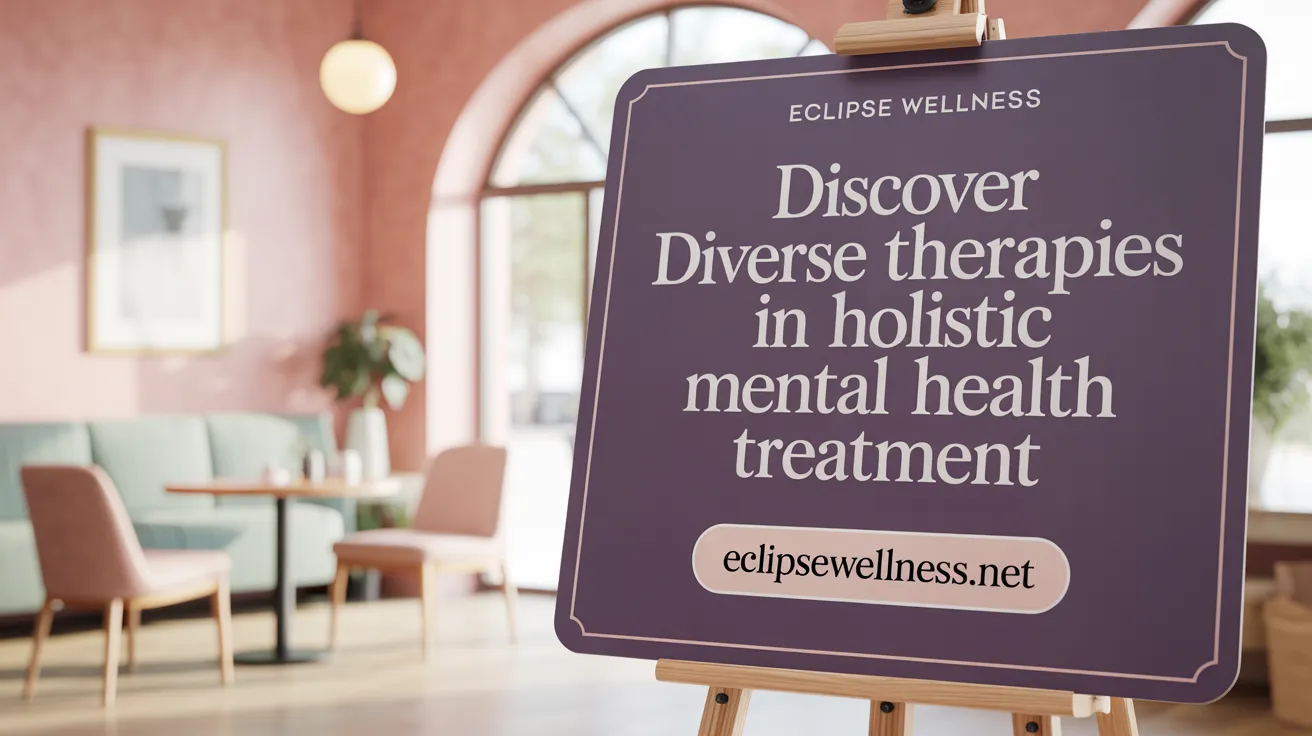 Holistic mental health treatment involves a broad spectrum of therapies designed to address the individual as a whole—encompassing the body, mind, spirit, and emotions. Conventional therapies such as psychotherapy, including cognitive-behavioral therapy (CBT), play a foundational role by fostering emotional understanding, behavior change, and improved communication. Alongside these, mind-body practices like mindfulness meditation, yoga, and tai chi have gained recognition for their ability to reduce stress, promote emotional regulation, and enhance mental clarity (Holistic Mental Health Care, Holistic Mental Health Care).
Holistic mental health treatment involves a broad spectrum of therapies designed to address the individual as a whole—encompassing the body, mind, spirit, and emotions. Conventional therapies such as psychotherapy, including cognitive-behavioral therapy (CBT), play a foundational role by fostering emotional understanding, behavior change, and improved communication. Alongside these, mind-body practices like mindfulness meditation, yoga, and tai chi have gained recognition for their ability to reduce stress, promote emotional regulation, and enhance mental clarity (Holistic Mental Health Care, Holistic Mental Health Care).
Expressive therapies, such as art therapy, music therapy, and equine therapy, facilitate self-expression, emotional regulation, and confidence building. Art therapy employs drawing, painting, and music to help individuals process feelings, while equine therapy involves working with horses to develop self-esteem and mindfulness (Holistic mental health treatment methods).
Nutritional and relaxation therapies are also integral components. Dietary modifications, including omega-3 fatty acids, magnesium, and vitamin D, support brain health and mood stabilization. Relaxation techniques like guided imagery, progressive muscle relaxation, and diaphragmatic breathing help reduce anxiety, improve sleep, and alleviate physical tension (Integrative Mental Health Care, Natural Mental Health Treatments).
Complementary treatments such as acupuncture, massage therapy, aromatherapy, and energy healing (like Reiki and reflexology) are used to promote relaxation and overall wellbeing. These therapies are often combined with traditional approaches to enhance resilience and emotional balance (Complementary and Alternative Therapies, Mind.org.uk CAM Therapies).
Integrating physiological and energy-based techniques aims to develop lifelong skills for managing stress and conflicts. It is crucial to work with qualified practitioners and consult healthcare providers before embarking on new therapies, particularly if medications are involved or the individual has complex health issues (Integrative Mental Health Care, Qualified Therapists and Access). Overall, these diverse practices contribute to a more comprehensive, personalized approach to mental health, supporting sustained emotional resilience and wellbeing (Holistic Approaches in Mental Health, Holistic Mental Health Care Resources).
Complementary and Alternative Therapies: Supportive Roles in Mental Health
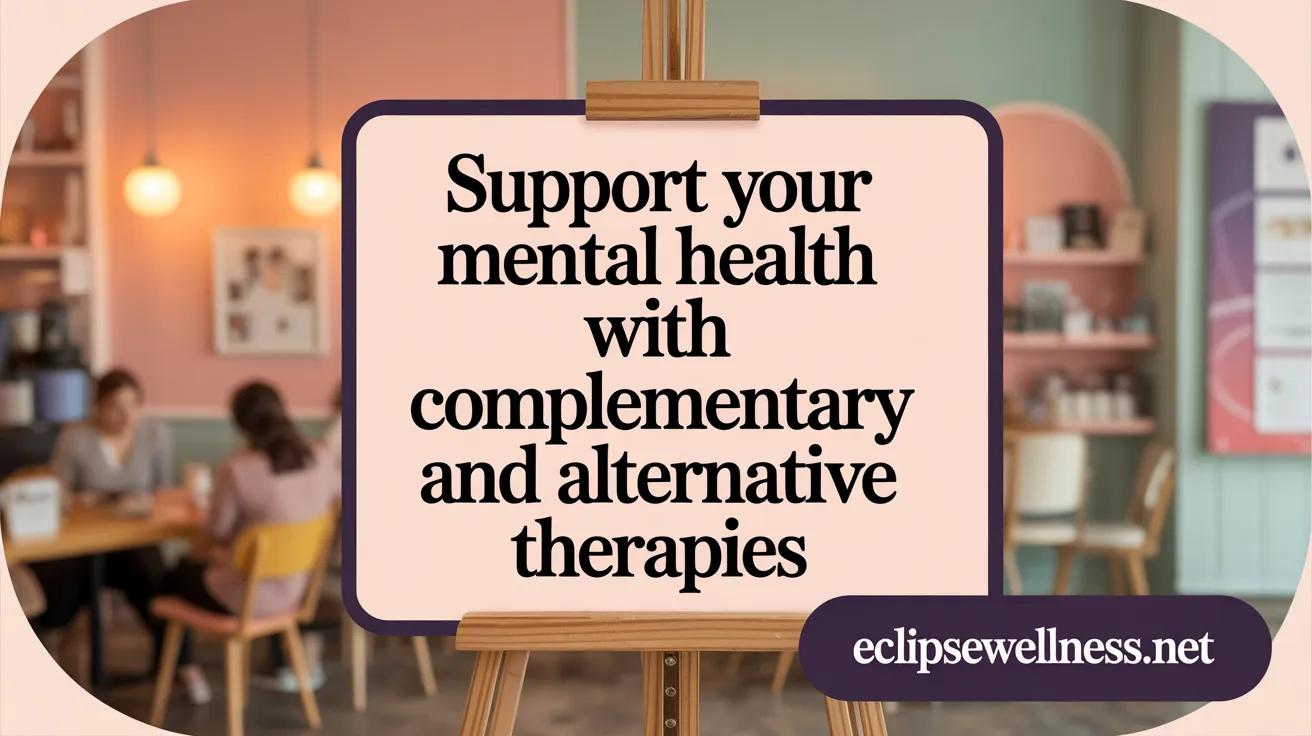 Complementary and alternative medicine (CAM) therapies encompass a broad spectrum of practices that are used alongside or in place of conventional mental health treatments. These therapies include modalities such as acupuncture, massage therapy, herbal remedies, mindfulness meditation, yoga, qigong, and aromatherapy. Their primary role is to support emotional regulation, reduce stress, and promote overall wellbeing.
Complementary and alternative medicine (CAM) therapies encompass a broad spectrum of practices that are used alongside or in place of conventional mental health treatments. These therapies include modalities such as acupuncture, massage therapy, herbal remedies, mindfulness meditation, yoga, qigong, and aromatherapy. Their primary role is to support emotional regulation, reduce stress, and promote overall wellbeing.
While many individuals find these therapies helpful, it is important to note that scientific evidence supporting their efficacy varies. Some modalities, like acupuncture and mindfulness-based practices, have a growing body of research indicating benefits for anxiety, depression, and stress reduction (Integrative Medicine in Psychiatry; Complementary and alternative therapies). Others, such as energy healing or certain herbal supplements, have more limited or inconclusive evidence (Challenges in Researching Energy Therapies).
The safety of CAM therapies often depends on proper regulation and practitioner qualification. Not all therapies are regulated, which can pose risks if treatments are administered by unqualified individuals. Patients should seek practitioners who are credentialed, certified, or recognized by professional organizations to ensure safe and appropriate care (Choosing qualified therapists).
CAM therapies generally serve as adjuncts to mainstream treatments like psychotherapy and medication. They can enhance emotional resilience, improve mood, and foster social connections, thereby complementing traditional approaches (Integrative Mental Health Care).
Patients should consult with healthcare providers before starting any CAM practices, especially when combining them with prescribed treatments. Integrated, evidence-based use of CAM can maximize benefits while minimizing potential risks (Integrative Mental Health Strategies).
In summary, complementary and alternative therapies offer valuable supportive options in mental health care. When used responsibly under professional guidance, they can contribute to a holistic, personalized approach that addresses diverse needs and promotes overall mental wellness (Holistic Mental Health Care).
Evidence and Benefits of Integrative Mental Health Care
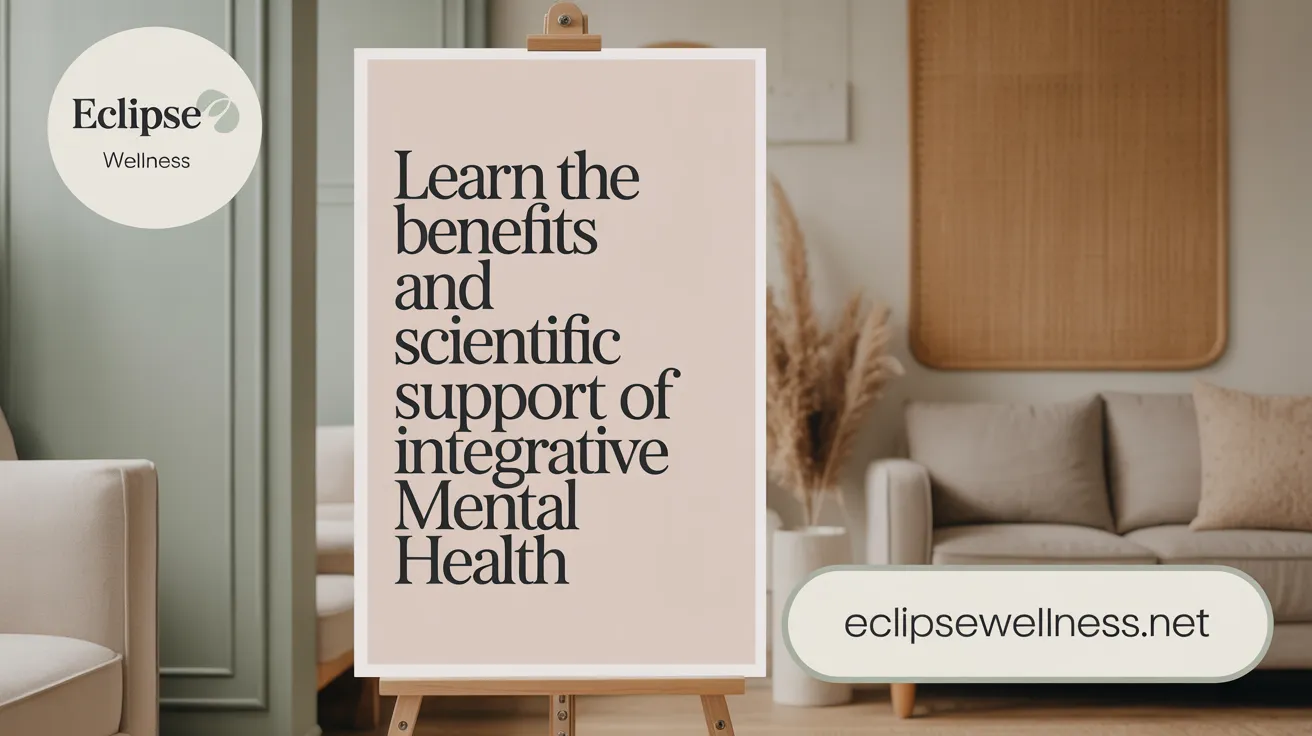
What are the benefits and advantages of integrative mental health care?
Integrative mental health care brings together various treatment approaches to deliver comprehensive, personalized support for mental health conditions. This approach improves patient outcomes by addressing not only symptoms but also underlying physical, social, and emotional factors, resulting in a more holistic recovery process. It enhances access to mental health services by normalizing screening and early intervention, helping to reduce stigma associated with mental health issues (Why We Need Mental Health Care Integration).
Models like the collaborative care framework and Primary Care Behavioral Health (PCBH) emphasize teamwork among healthcare providers, ensuring coordinated treatment that benefits conditions such as depression and anxiety. These models also contribute to lower healthcare costs by reducing emergency visits and hospitalizations. Providers often experience increased satisfaction due to streamlined workflows and fewer feelings of burnout, as the team-based approach distributes responsibilities effectively (Benefits of integrated behavioral health services).
Patient empowerment and family involvement are central tenets, fostering person-centered care that actively involves individuals in their treatment plans (Psychological interventions and family-based therapies). Overall, this system not only promotes better health outcomes but also creates an accessible, stigma-free environment for mental health support, bridging gaps in traditional care (Integrated Behavioral Health Care).
What scientific evidence supports holistic mental wellness approaches?
Research increasingly substantiates the effectiveness of holistic strategies in supporting mental wellness. Evidence highlights that mental health is influenced by a network of biological, psychological, social, environmental, and spiritual factors, all of which can be positively impacted through lifestyle modifications (Holistic mental health care). Physical activity, sleep hygiene, balanced nutrition, social connectedness, and stress management techniques such as yoga and meditation have demonstrated measurable benefits in mood improvement, resilience, and overall mental well-being (Holistic mental health practices).
Traditional healing practices like Traditional Chinese Medicine (TCM) and Ayurveda focus on restoring energy balance and internal harmony, with studies indicating their positive contributions to mental health stability (Integrative medicine in psychiatry, Integrative health approaches). Mind-body practices, including yoga and mindfulness meditation, are supported by numerous scientific studies showing reductions in anxiety, depression, and stress, along with improved sleep quality (Mindfulness and meditation techniques).
Additional research emphasizes the role of nature exposure and green spaces in promoting psychological resilience (The holistic path to mental health). These findings advocate for an integrated approach that considers physical health as an essential component of mental health, reinforcing the importance of preventative, community-based, and systemic care models for sustained mental wellness (Holistic approaches in integrated psychological care).
Implementing Integrated Behavioral Health Care: Models and Strategies
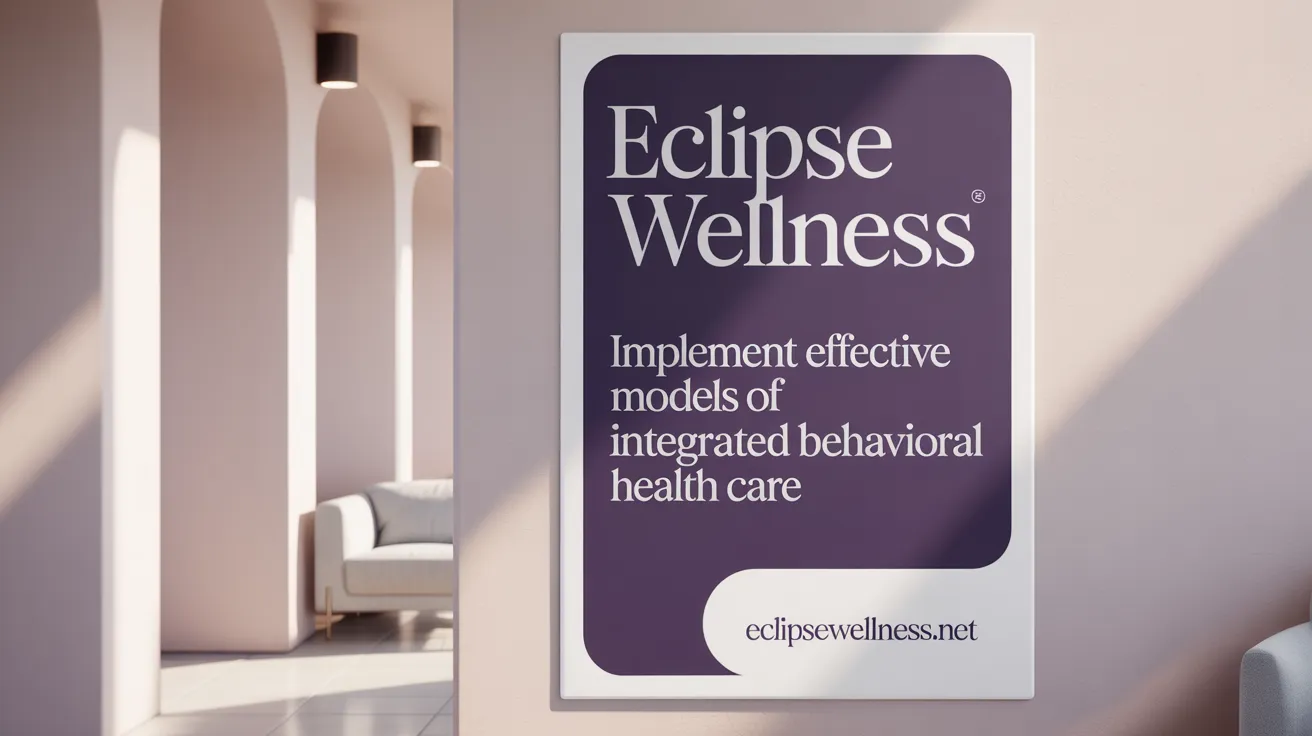
What are effective implementation strategies and models for integrated behavioral health care?
Effective implementation of integrated behavioral health care involves several strategic approaches. Central to this is adopting collaborative care models, which foster multidisciplinary teamwork, shared care planning, and systematic communication among healthcare providers. These models ensure that mental health professionals, primary care clinicians, and specialists work together seamlessly, enhancing the quality of care.
Frameworks such as the Exploration, Preparation, Implementation, and Sustainment (EPIS) model and Proctor’s Implementation Outcomes Framework play a vital role in guiding the process. They help in assessing feasibility, acceptability, fidelity to protocols, and sustainability, ensuring that programs are both practical and durable over time.
Key strategies also include designating change champions within clinics to lead efforts, offering targeted training on brief, evidence-based interventions, and developing dedicated physical spaces for behavioral health services. Furthermore, establishing efficient scheduling, billing, and reimbursement systems is crucial for operational success.
Technology, such as shared electronic health records and telehealth platforms, supports care coordination and expands access, especially in underserved areas. Overcoming barriers like organizational resistance, provider workload, and insurance reimbursement challenges requires strategic planning, advocacy, and policy adjustments.
Embedding behavioral health providers directly into primary care clinics—through co-location or telehealth—facilitates ongoing communication and immediate consultation. Regular training and data-driven evaluation help in refining operational processes and maintaining high standards of care. In sum, these models and strategies aim to make integrated behavioral health care accessible, effective, and sustainable, ultimately improving patient outcomes and system efficiency. For more insights on the benefits and physician perspectives regarding integrated behavioral health services, see Benefits of integrated behavioral health services and Why We Need Mental Health Care Integration.
Natural and Evidence-Based Treatments in Integrative Mental Wellness
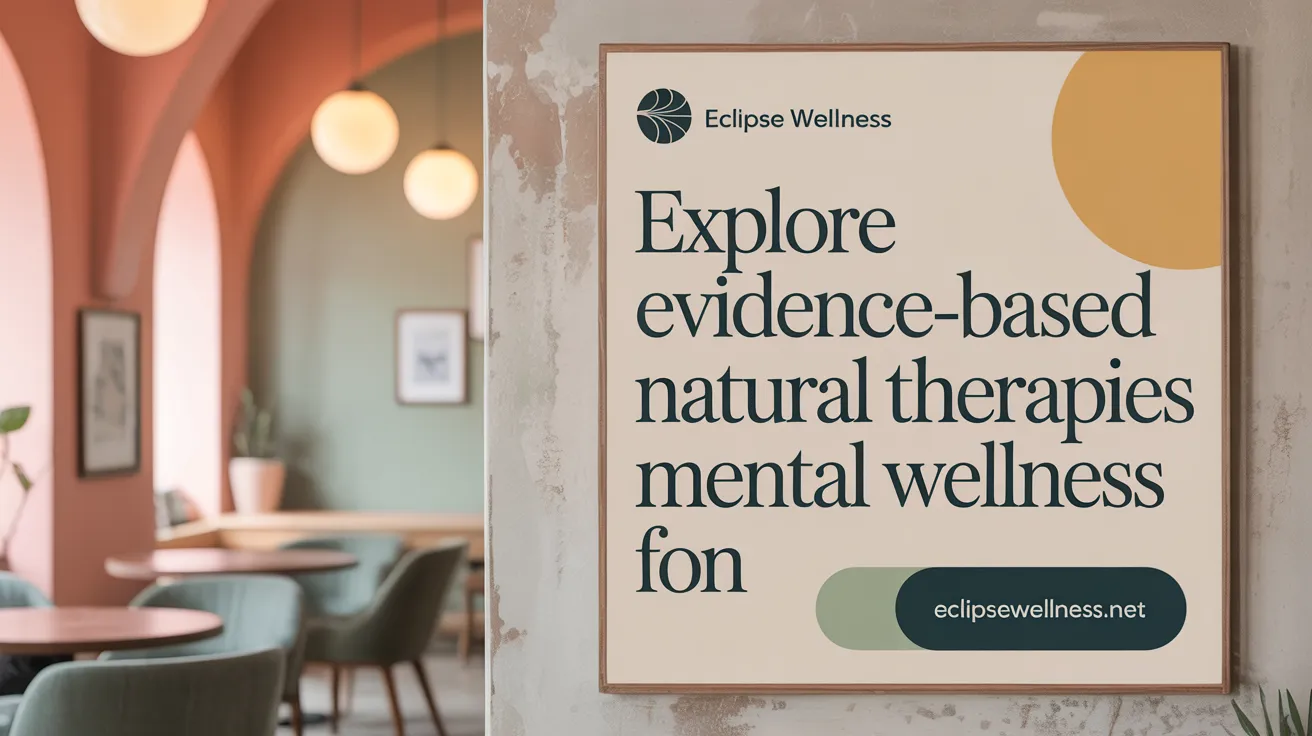 Natural and evidence-based treatments for mental wellness encompass a broad spectrum of herbal remedies, dietary supplements, psychological therapies, and mind-body practices, all aimed at supporting emotional and cognitive health. Among herbal options, St. John’s Wort has been widely studied for mild to moderate depression, while omega-3 fatty acids, found in fish oil, show promise in reducing depressive symptoms and supporting brain function. Magnesium and vitamin D deficiencies are linked to increased anxiety and depression, and supplementation may improve mood when deficiencies are present. Supplements like melatonin can assist with sleep disorders, contributing to overall mental well-being.
Natural and evidence-based treatments for mental wellness encompass a broad spectrum of herbal remedies, dietary supplements, psychological therapies, and mind-body practices, all aimed at supporting emotional and cognitive health. Among herbal options, St. John’s Wort has been widely studied for mild to moderate depression, while omega-3 fatty acids, found in fish oil, show promise in reducing depressive symptoms and supporting brain function. Magnesium and vitamin D deficiencies are linked to increased anxiety and depression, and supplementation may improve mood when deficiencies are present. Supplements like melatonin can assist with sleep disorders, contributing to overall mental well-being.
Psychological interventions such as Cognitive Behavioral Therapy (CBT) are strongly supported by research and can be delivered digitally, making treatment accessible and adaptable. These therapies help modify negative thought patterns and promote healthier behaviors, often yielding results comparable to medication in depression and anxiety treatment. Mindfulness practices, including meditation and relaxation techniques, have demonstrated efficacy in reducing stress, enhancing mood, and improving emotional regulation.
Mind-body practices like yoga, Qigong, and Tai Chi combine physical movement with breathing and meditation, fostering relaxation and mental clarity. Evidence indicates that these gentle exercises can alleviate symptoms of anxiety and depression, strengthen resilience, and promote overall psychological health.
Nutrition, sleep hygiene, and physical activity form foundational pillars in holistic mental wellness. A balanced diet rich in omega-3s, magnesium, and vitamin D supports brain health and mood regulation. Regular exercise releases endorphins, boosts mood, and reduces stress, while good sleep hygiene ensures emotional stability and cognitive function.
Patient empowerment through personalized treatment plans is essential for successful outcomes. Tailoring interventions based on individual needs, preferences, and biochemical profiles enhances engagement, adherence, and overall satisfaction. Integrative mental health care encourages active participation, combining conventional and complementary therapies to optimize mental wellness.
For optimal safety and efficacy, individuals should consult healthcare professionals before initiating new treatments, especially when combining supplements or herbal remedies with prescribed medications. This integrated, patient-centered approach fosters resilience, improves quality of life, and supports long-term mental health stability.
The Transformative Impact of Integrative Holistic Care
Integrative care offers a transformative, holistic pathway to mental wellness by addressing the complex interplay of physical, emotional, social, and spiritual factors that influence mental health. By combining conventional medical treatments with complementary therapies, lifestyle changes, and evidence-based practices, it fosters personalized, patient-centered care that supports resilience and long-term well-being. Effective implementation of integrated behavioral health models enhances access, coordination, and quality of care while reducing stigma and healthcare costs. Scientific evidence validates numerous holistic approaches, from mindfulness and nutritional interventions to expressive and mind-body therapies, emphasizing treatment of the whole person rather than isolated symptoms. Ultimately, integrating these strategies empowers individuals to achieve better mental health outcomes, stronger self-awareness, and improved quality of life—signaling a new era in compassionate, comprehensive mental health care.
